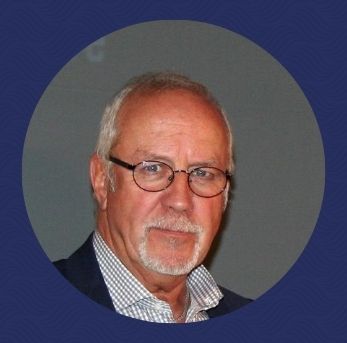BA Politics. Class of 1969. Peace Campaigner. Charity Leader.
On the 20th March 1993, the Irish Republican Army (IRA) exploded two bombs without warning in a shopping street in Warrington. The explosions killed three-year-old Jonathan Ball at the scene and injured 55 others, including 12 year old Tim Parry. Tim sustained extensive head injuries and eventually lost his life five days later.
Losing a child in such devastating circumstances would be enough to break most people but Colin and his wife Wendy took a different path. Colin and Wendy made a ‘special’ Panorama documentary programme, which took them to Northern Ireland, the Republic of Ireland and Boston in the USA. During their time in Northern Ireland, they visited organisations working for Peace, to see how they engaged with young people living in the midst of what was seen by many as a never-ending ‘war’.
Inspired by what they had seen, Colin and Wendy set up their own charity (the Foundation) in 1995 to work for peace. In 1996/7, they organised their first exchange programmes for young people from Belfast, Dublin and Warrington, which were so successful, that Wendy proposed building a Peace Centre, both as a memorial to the boys, and to provide an East- West dimension to the peace process in Ireland.
On March 20th, 2000, the 7th anniversary of the bombing, the Peace Centre was opened. As a multi-purpose building with incredible facilities, including a games area, sports hall, residential quarters and dining room, conference facilities and offices.
The Foundation’s very first programme was the ‘Tim Parry Scholarship’. New projects were developed and in 2001, the Foundation undertook a study looking at the specific needs of GB based victims of the Northern Ireland conflict. From this report, work began to provide support and assistance to those victims. Terrorist attacks, such as ‘9/11’ and ‘7/7’, which came after the 1998 Good Friday Agreement in Northern Ireland, led to the Foundation developing new programmes, working not only with young people but also adults and communities across Britain, in building peace and conflict resolution skills.
The Foundation’s work is made up of projects that evolve to keep pace with contemporary challenges. They focus on young people, offering leadership development, and work with those who are at risk from violence and extremism. We work with women’s groups to build their skills, recognising their unique abilities to influence their families and their communities. They help British and British-based citizens who are victims or survivors of terrorism in this country or overseas.
The Foundation’s reputation and work continues to grow and they undertake many projects internationally, working with other Non-Governmental Organisations. The Foundation is an independent, non-aligned charity that works ‘for peace’. They are not faith or politically based, and do not pursue causes such as justice or truth. There is no other organisation that takes such a stance.
To reduce serious violent conflict (terrorism, political violence, war) they direct their efforts at prevention, resolution and response – the ‘before, during and after’. It is this coalescence of principles and skills that makes the foundation unique. Colin and Wendy both received an OBE for their services to peace and conflict resolution. Colin also get back to Swansea regularly for a reunion with his Swansea classmates.

